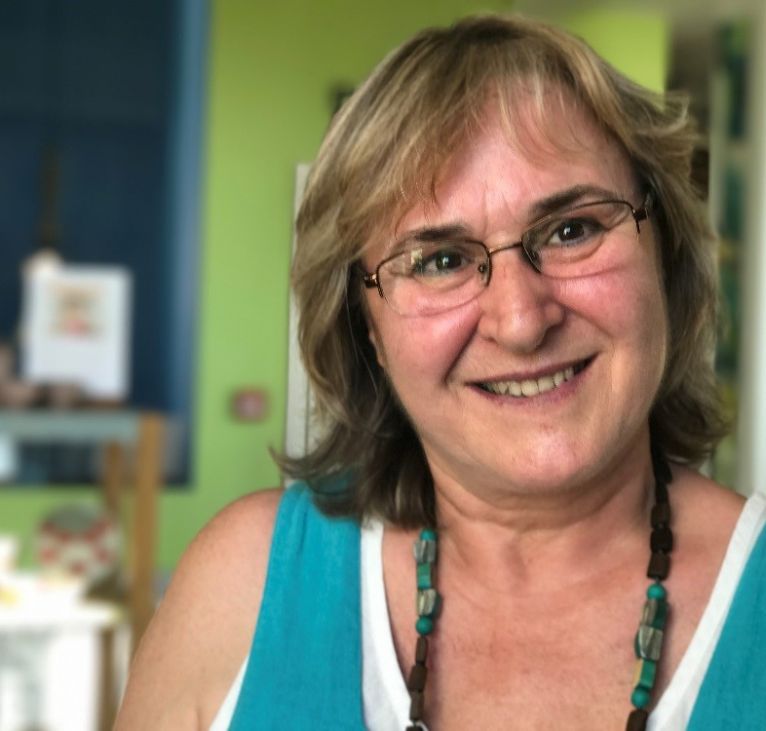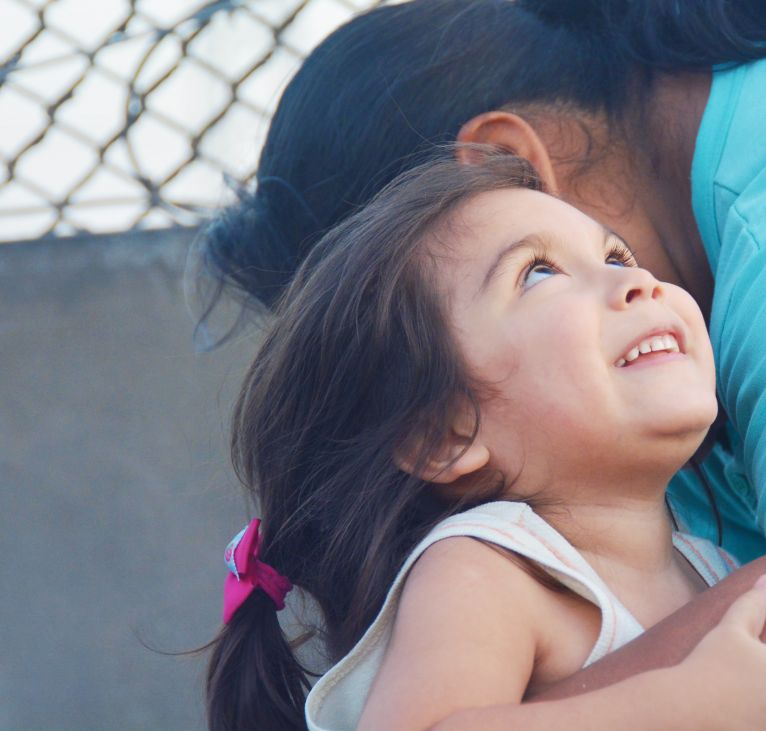We are a time-bound, grant-making special initiative in memory of Tanya Kovacheva. Tanya’s Dream Fund is sheltered by Swiss Philanthropy Foundation.
Tanya Kovacheva
A passionate advocate for children’s rights, Tanya Kovacheva knew that children growing up in institutions (often simply because their families were too poor to care of them) were at risk of both physical and mental harm. At Oak Foundation, an international grant-making organisation, she oversaw grants to replace child institutions with family-centric alternatives such as returning children to their biological families when possible or providing them with foster care in loving homes.
Tanya was instrumental in creating countless partnerships between Oak Foundation and organisations working on child rights in Bulgaria, and in recognition of her achievements was awarded the Presidential Medal of Honour by the President of Bulgaria Rosen Plevneliev in 2014.
Tanya’s dream was for “institutions for children” to be consigned to history; something that future generations could not imagine a need for.
We are here to make sure Tanya’s dream becomes a reality for Bulgarian children.
Tanya Kovacheva understood that all children, like all families, need stability in their lives. She recognised that stable families create stable, thriving communities, and was dedicated to making this a reality in Bulgarian society. Tanya’s dream was for the idea of “institutions for children” to be consigned to history; something that future generations could not imagine a need for. We are here to ensure that Tanya’s dream becomes a reality for Bulgarian children.


Tanya’s dream was for “institutions for children” to be consigned to history; something that future generations could not imagine a need for.
We are here to make sure Tanya’s dream becomes a reality for Bulgarian children facing adversity.
Adversity is likely to disrupt a child’s development, with the damaging effects of extreme, ongoing stress potentially lasting a lifetime – and resulting in significant costs to communities and nations for medical care, social care programmes, and more.
The negative consequences of adversity can, however, be counterbalanced by a combination of positive early experiences; support from responsive adults; and the early development of adaptive skills, all of which aid in the development of resilience. Having at least one stable, committed relationship with a supportive parent or caregiver has been proven to be the key factor in the development of resilience.
The UN Convention on the Rights of the Child recognises the central importance of family for child development, and obligates States to support families in various ways to help them stay together and thrive. These include providing parents with appropriate help in support of child-rearing responsibilities, and with access to healthcare and education for their children.
So, why are children so often unnecessarily separated from their parents and families?
It is estimated that 2,000 children enter the care system every year in Bulgaria. Roma parents, poor families, single mothers, and parents of children with disabilities face systemic discrimination and also lack access to essential services. Poverty, discrimination, social isolation, gender-based violence, and disability are the likely drivers of separation. With appropriate support in line with the Convention on the Rights of the Child, most cases of separation can be avoided.
Why are family separations so problematic?
Institutionalisation can seriously impact a child’s physical and psychological development – and it greatly increases the mortality rate of children with disabilities. Furthermore, institutions are significantly more expensive than supporting children in families and family-based care, and in the long run they also lead to higher rates of homelessness, suicide, and crime.
What is Bulgaria’s care system like currently?
The Bulgarian Government has pledged to close all institutions for children by 2025, with the numbers of large institutions for children dropping from 132 in 2010 to just 4 in the beginning of 2021.
However, while some children have returned home, many others remain in the care system. Over 90% of children with disabilities have, for instance, been transitioned from large institutions into more than 280 new small group homes built by the government with the support of EU funding. Unfortunately, life in small group homes is not akin to family life, and the children are not part of the community.
Although most of the large institutions have closed, children continue to be unnecessarily separated from their families and placed in care, with negative consequences for their emotional, physical, and cognitive development. 7190 children were placed in institutions in 2010, at the beginning of the deinstitutionalisation reform.
About 8500[1] children were placed in some type of formal care placement (excluding those determined through the juvenile justice process) in 2018. Data about the flow of children to formal care is extremely difficult to access[2] and frequently varies, but, for orientation, records show that at the end of 2019[3] 6496 children had been living in family-based formal care, while 3464 non-family-based residential placements had been available for children and youth. Despite clear commitments to prevent family separation and reintegrate children with families, more effort is needed to keep families facing extremely difficult situations together. In 2016, the government acknowledged that more work can be done on, “protecting the lead role of the family in childcare,” and that without this, “the immense investments […] will not lead to a true de-institutionalisation.”
The EU funds committed to the reform continue to be invested in buildings for responsive community-based services, rather than in direct prevention work and support for families. And, in spite of several worrying reports of severe abuse in EU-funded residential services for children with disabilities, there is neither action nor clear, accessible and transparent accountability or oversight mechanisms on behalf of the EU.
What is the solution?
Research shows that children thrive best in a safe family environment, with responsive relationships and positive experiences to help them build a strong brain architecture. The best way to achieve this is, wherever possible, to enable families to remain safely together.
We are committed to preventing unnecessary family separation. Support is needed to help adults develop the core life skills required to provide their children with a stable and supportive environment, and to ensure they have access to necessary resources for their children, from healthcare to education (something that poverty too often deprives them of). Their experience needs to be valued and they need opportunities to organise themselves, and access to services that will help them keep their families together.
The healthy development of all children is essential for a thriving and prosperous community. And the best way to promote the healthy development of children is to implement effective policies to remove barriers to good parenting, reduce family poverty, and increase access to nutritious food, healthcare, early childhood development, education, and economic development.
The current reality in Bulgaria reflects the pervasive attitudes and prejudices towards children with disabilities and impoverished Roma children and parents. Poor families, particularly Roma, are often stigmatised; seen as ‘bad parents’ incapable of raising their own children. Shifting the focus to supporting children in families requires a fundamental change in the cultural norms and attitudes underpinning placement decisions, as well as new technical solutions. We know this change is possible and we are here to support it.
[1] Interview with the Ombudsperson’s office staff, April 2018
[2] ASA’s Integrated Information System (IIS) has existed since 2016. It holds all Child Protection case files opened after the launch, alongside briefs of prior cases. The software does not provide ‘smart’ functions and has very limited use in integration with other government registers and systems. The great majority of the valuable information about the child protection cases is unstructured textual data. There are no identifiers to assess in depth the reasons for child protection. The ISS is accessible only for authorised staff from social service providers or municipalities. (Child Protection System Analysis, UNICEF, 2019)
[3] Annual Report 2019, Agency for Social Assistance
We are family-focused.
We are rights-led.
We are inclusive.
We seek to maximise impact.
We learn from success and from failure.
Our Values
We are family-focused. We respect and listen to families. We believe parents have the solutions to the challenges they face and that they are a powerful driver of positive change for children.
We are rights-led. We ensure children and caregivers can claim their rights. We adhere to and promote international human rights law, in particular the UN Convention on the Rights of the Child, and the UN Guidelines for the Alternative Care of Children. We ensure the organisations we work with are accountable.
We are inclusive. We promote equality and value diversity. We respect different points of view. To inform our work, we seek contributions from parents, children, and young people with lived care experience, as well as from a range of experts. We make sure all parties are engaged, and all voices equally heard.
We seek to maximise impact. We are time-bound and see our work as a catalyst for lasting change. We encourage innovation when it comes to developing sustainable ways to keep families together. We are strategic in our investing, collaborating closely with our partners. We aim to inspire other countries regionally and at a global level.
We learn from success and from failure. And because we constantly learn, we are able to adapt to change. We aim to be transparent, accessible and reactive in our relationships with partners. We seek feedback and listen carefully. We do not expect everything we undertake or decide to support to be successful and, where it is not, we will always try to pinpoint the factors behind the failure so we can address them in our future work.
We want to stem the flow of children into care and ensure that parents and children have access to the services and support they need to prevent family separation. We want to catalyse a movement of young people and parents with lived experience of care to bring about change – and hold the government, the EU and service providers accountable for investing in children and families.
In order to achieve our ambition, we are focused on four strategic priorities:
- Refocusing public commitments on the vital importance of keeping families together.
- Promoting parents’ and young people’s voices to inform policies and practice and hold the government and EU accountable.
- Helping scale up what works to prevent unnecessary family separation.
- Strengthening the Bulgarian philanthropic response to children at risk of separation in crisis and emergency situations.
Our Strategic Goals
- Refocusing public commitments on the vital importance of keeping families together, by:
- Communicating – championing new voices of children, parents, and young people with lived experience of care to challenge the current narrative
- Advocating – strengthening and building constituencies with key activists, champions, and NGOs
- Inspiring – using the evidence of what works in terms of keeping families together to inspire investment and commitment
- Supporting – the development of a data analytics framework that re-defines child protection to a system focused on the wellbeing of children in families.
- Promoting parents’ and young people’s voices to inform policies and practice and hold the government and EU accountable, by:
- Incubating leadership through supporting the development of young people with lived experience; parent activist groups; and relevant associations, organisations and networks
- Catalysing both a family-centric care movement in Bulgaria and the development of links to regional and global movements, spearheaded by young people with lived experience of care.
- Helping scale up what works to prevent unnecessary family separation, by:
- Identifying existing high-performing or promising models and their evidence base, and assessing scalability
- Building the capacity of NGOs and grassroots organisations to scale up services for preventing family separation
- Developing the business case for Government and EU investment in children and families.
- Strengthening the Bulgarian philanthropy’s response to children at risk of separation in crisis and emergency situations, by:
- Responding to the urgent needs of families at risk of separation due to the wide-ranging impact of emergencies on those already experiencing significant adversity, deepening inequality, and discrimination
- Inspiring a coordinated giving mechanism to prevent child-family separation in this context engaging with Bulgarian donors and other philanthropists with a giving focus on Bulgaria.
Tanya’s Dream Fund works to create the conditions for individuals and organisations to achieve a shared vision of a Bulgarian society where children grow up in families and have the support they need to thrive. Our grantees and partners – individuals with lived experience of care and organisations who work to re-assert the value of children growing up in nurturing families – are our community. Together we champion the importance of investing in families, and eliminating poverty, discrimination, and disability as reasons for family separation.


Guides and Toolkits: Access comprehensive guides and toolkits designed to help families navigate challenges and access support services.
Research and Reports: Stay updated with the latest research and reports on family support, child protection, and the impact of separation.
Policy Briefs: Understand the policy landscape with our concise and informative policy briefs. These documents highlight key issues, legislative changes, and advocacy opportunities in child welfare.
We hope these resources empower you with the knowledge and tools needed to support children and families effectively. For more personalised assistance, feel free to contact us directly.

We operate with an invitation-only grant-making process. We work through our networks to find partners whose work aligns with our strategy. Occasionally, we may issue calls for proposals to explore solutions to particular issues in our strategic areas of interest.
We support organisations, groups, and individuals that:
Use a rights-based approach to services and advocacy
Amplify parents’ and young people’s power and agency as full and equal participants in society
Work to address the root causes of family separation and take a ‘whole family’ approach
Work to change attitudes and behaviour to prevent discrimination
Are willing to collaborate and add to the collective action of individuals and communities
Build evidence that contributes to best practice and innovation
Promote systemic change by strengthening legal frameworks and holding the government to account.
Tanya’s Dream Fund operates with an invitation-only grant-making process. We work through our networks to find partners whose work aligns with our strategy. Occasionally we may issue calls for proposals to explore solutions to particular issues in our strategic areas of interest.
We invite organisations working in our areas of interest to submit concept notes or applications for funding. We have a rigorous due diligence and selection process and ensure that we gain an in-depth understanding of the organisation’s goals and approaches. We do our best to support the applicants throughout the process, and pass on applications we believe to be promising to our Steering Committee. The Steering Committee meets quarterly to review and make the final funding decisions on all recommended applications.
We do not accept unsolicited requests for funding, but if you believe your work is relevant to our strategy and you’d like to share it with us, we’d be keen to hear from you. Please submit your details via our contact form. Thank you.